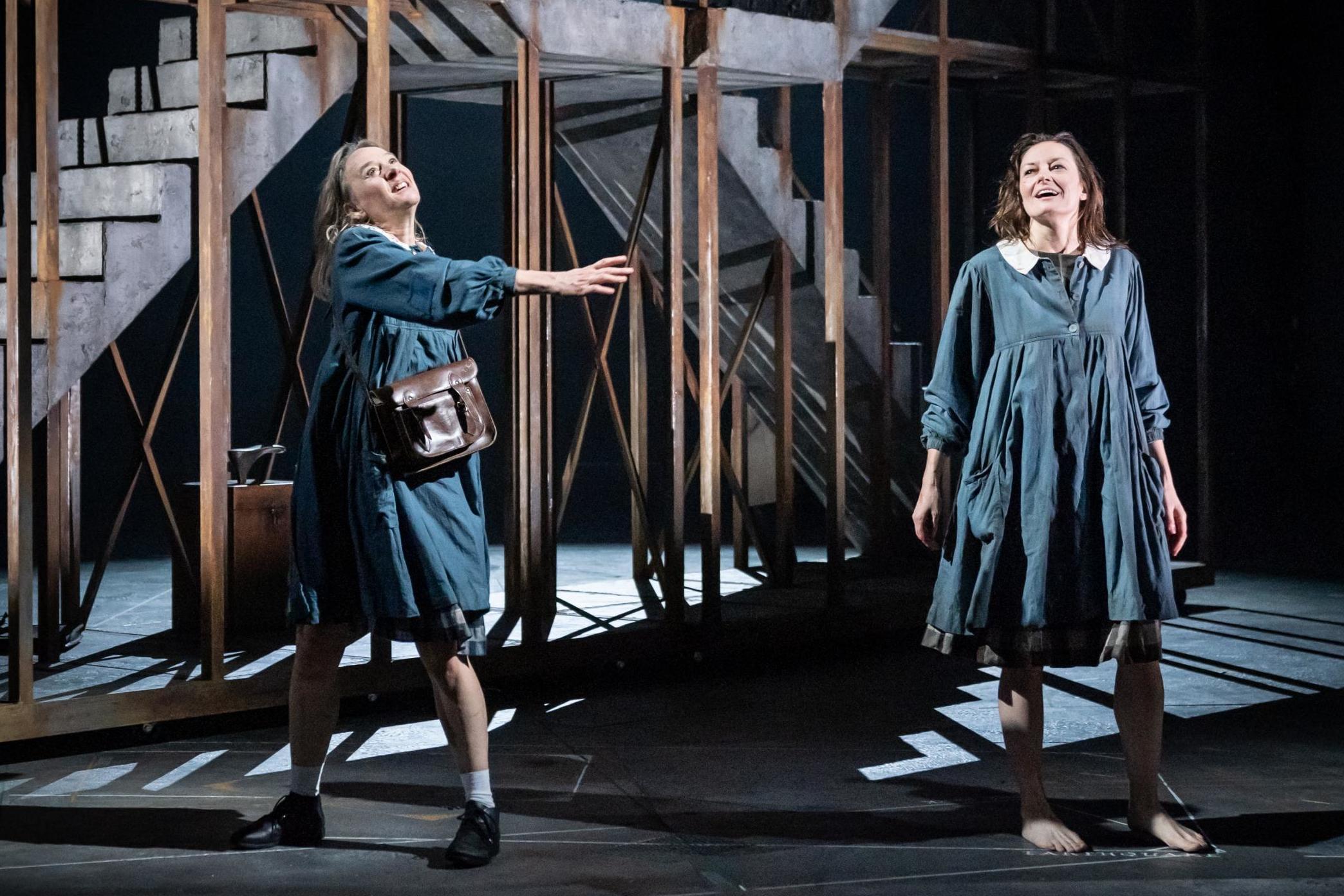My Brilliant Friend review, National Theatre: A lively, generous tale of femininity and violence
In this five-hour adaptation of Elena Ferrante’s Neapolitan novels, director Melly Still manages to avoid gratuity

Your support helps us to tell the story
From reproductive rights to climate change to Big Tech, The Independent is on the ground when the story is developing. Whether it's investigating the financials of Elon Musk's pro-Trump PAC or producing our latest documentary, 'The A Word', which shines a light on the American women fighting for reproductive rights, we know how important it is to parse out the facts from the messaging.
At such a critical moment in US history, we need reporters on the ground. Your donation allows us to keep sending journalists to speak to both sides of the story.
The Independent is trusted by Americans across the entire political spectrum. And unlike many other quality news outlets, we choose not to lock Americans out of our reporting and analysis with paywalls. We believe quality journalism should be available to everyone, paid for by those who can afford it.
Your support makes all the difference.Theories abound as to the identity of Elena Ferrante. Thanks to the Neapolitan novels author’s aversion to publicity, some believe her to be the alter-ego of male writer Domenico Starnone. April De Angelis – who has adapted Ferrante’s novels into a lively, generous four-part play – doesn’t buy it. “It’s so female,” she said of the story. “The passions, the menstruation, and f***ing from a woman’s point of view. Women live secret lives and they are never allowed into the big narrative of what it means to be human.”
This five-hour National Theatre production – which has transferred, with a few tweaks, from The Rose in Kingston – deftly brings those secret lives into the open. Growing up in 1950s Naples, Lila and Lenu start their friendship with a betrayal. Lila (Catherine McCormack), headstrong and fearless, persuades Lenu (Niamh Cusack) to trade dolls, and then coldly drops Lenu’s through a dark grate. When Lenu instinctively does the same, Lila leads her by the hand to retrieve them.
That formative meeting sets the tone for a tense, tentative friendship. Theirs is a potent melting pot of love, jealousy, loyalty and resentment, and so it remains for the next several decades, as Mafia mobs battle for control of the Naples neighbourhood, and fascism flourishes around them.
It all takes place on an imaginatively minimalist set: concrete, Penrose stairs are the centrepiece; cars are suggested by two large headlights or the carefully directed blast of a fan; the sea is several billowing cerulean sheets.
McCormack, Cusack and the rest of the cast play their characters from early childhood into old age. Adults as children can be distracting – even disturbing – but the performances here are subtle, their youth relayed through gutsiness and naivety, not through high-pitched voices or childish physicality.
The fiercely intelligent Lila rails against the constraints of her class and her gender, spitting in people’s faces and holding knives to older men’s throats. She is desperate to escape this “s*** hole”, plotting to write her way out just like her hero Louisa May Alcott (there’s a sweet, funny scene in which she and Lenu act out the emotional climax of Little Women). “From now on, whatever we do, we do together and on purpose,” she tells Lenu. “Because they’ll blame us anyway.”
But in the end, Lenu is the only one with the means to escape – her parents allow her to stay in school, while Lila, the brightest of the two with an original mind that Lenu often copies, must leave to work in her father’s shoe shop.
McCormack is magnificent at conveying Lila’s misdirected anger – a rage nurtured by years of disappointment, oppression and abuse. Her performance reminds me of what the musician Mitski once said about feminine art: “I mean feminine in the violent sense,” she explained. “Desiring, but not being able to define your desire, wanting power but being powerless and blaming it on yourself, or just hurting yourself as a way to let out the aggression in you. It’s a lot of pent-up anger or desire without a socially acceptable outlet.” My Brilliant Friend is a story of femininity, violence, and the unpalatable ways those two things collide.

During the most egregious acts of violence, though, director Melly Still manages to avoid gratuity. Twice, a replica of Lila’s dress is lifted above her head mid-scene. She steps back and watches on, as her disembodied outfit is first hurled down a flight of stairs and then later, sexually assaulted. It works well; not least because it mirrors the way women often dissociate from the atrocities done to them.
That Still has the actors using their own accents is also a wise decision. Cusack, who is remarkable as a woman grappling with being unremarkable, speaks in her gentle Irish burr; McCormack is from Surrey; there are Geordies, Scousers and Mancunians, too. Not once do I doubt that they all grew up in the same scrappy neighbourhood.
In the fourth part, the use of colourful, lycra puppets as Lila and Lenu’s two daughters doesn’t quite work, and the pace dips a little. Having zipped along with such spirit and verve, the production fizzles out just a little in its final part.
But for the most part, this is a humane exploration of female friendship, class, and social progress. “Until we write our own stories, women won’t know who we are,” says Lenu. This brings us a little closer.
To 22 February 2020
Join our commenting forum
Join thought-provoking conversations, follow other Independent readers and see their replies
Comments